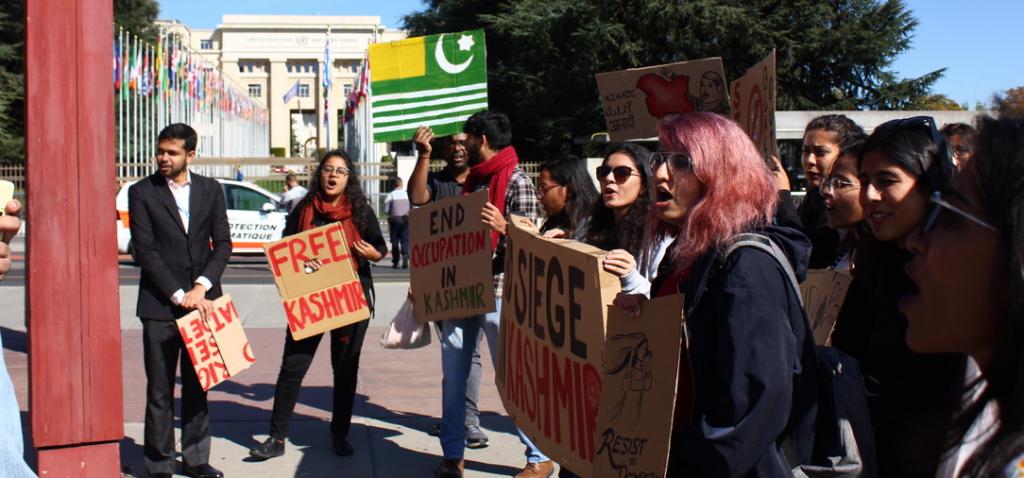“Historically, Kashmiris have been oppressed”, said Surya Ghildiyal, member of the Graduate Institute’s Understanding Kashmir Initiative; the demonstration held in front of the United Nations Office at Geneva echoed this sentiment.
The most oft-repeated slogan called for azadi, or freedom, not just in terms of fundamental rights but also freedom from the oppressive Indian regime. Chants called out Prime Minister Narendra Modi for carrying out human rights violations with impunity, a blatant exposure of the two-faced nature of Indian democracy.
The most recent bout of violence in the disputed region began in early August this year, when the Indian government sent an additional 38,000 troops into what is already the world’s most militarized zone, forcing educational institutions to shut down and tourists to leave – ostensibly for security purposes.
On 5 August, the Minister of Home Affairs announced that articles 370 and 35A of the Constitution of India would be revoked, thereby removing the semi-autonomous status of Jammu and Kashmir, and bringing them under the direct authority of the central government. Consequently, communication lines were snapped and internet and mobile services have been suspended indefinitely.
In addition, regional political leaders have been placed under house arrest; constitutional experts continue to debate the validity of the move. Meanwhile, although Prime Minister Modi continually insists that normalcy will be restored in Kashmir, people remain skeptical; reports have surfaced concerning excesses on the part of the Indian Army amounting to civilian torture.
“The moment one stops talking about an issue, it tends to be forgotten”, said Sharib A. Ali, an anthropology student who traveled from Lucerne for the protest. For him, movements such as these are an important means of showing dissent for the Indian government.
In many ways, despite its focus on Kashmir, the protest was part of a larger movement that empathises with minorities both in India and abroad under occupation of one kind or another. But it remains to be seen when the subjugated people will be given an iota of freedom.
This article, written by Anand Menon, originally appeared in The Graduate Press. It has been edited with the author's permission.


